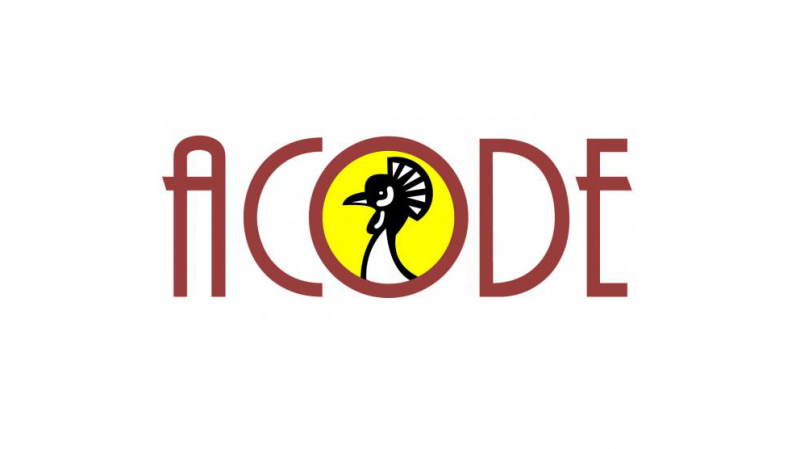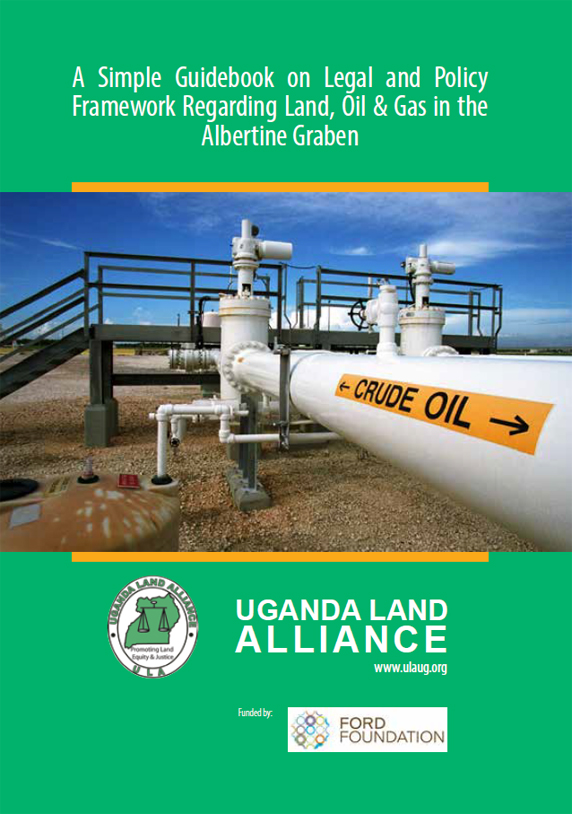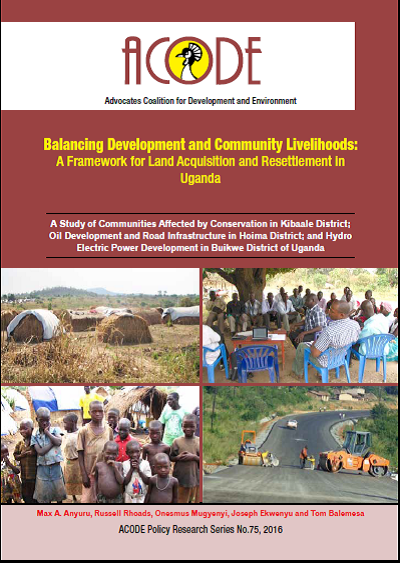Location
Kampala
Uganda
Advocates Coalition for Development and Environment (ACODE) is an independent public policy research and advocacy think tank based in Uganda working in East and Southern Africa. ACODE was first registered in 1999 as a Non-governmental organization (NGO). In 2004, the organization was incorporated as a company limited by guarantee and without having a share capital. ACODE is one of the most dynamic and robust regional leaders in cutting-edge public policy research and analysis in a range of areas including governance, trade, environment, and science and technology. ACODE has, for the last four consecutive years, been ranked in the Global Go To Think Tank Index as one of the best think tanks in Uganda and one of the top think tanks in the world. Think Tanks in Africa continue to play a major role in policy development and implementation. The Advocates Coalition for Development and Environment (ACODE) has been ranked 23 out of 92 Top Think Tanks in Sub-Saharan Africa and 29 out of 90 globally with Best Advocacy Campaign in the 2015 Global Go To Think Tank Index Report (TTI), led by the University of Pennsylvania through its Think Tanks and Civil Societies Program (TTCSP).
ACODE is non-partisan and independent and therefore does not align with any political party or political organisation. However, given the direct relationship between development policy and politics, we believe that our work is political and it must stand for certain political causes of a bi-partisan nature. Such causes are legitimate issues of research interest so long as they are defined on the basis of constitutionalism, the rule of law as well as national and regional interests as expressed in the relevant treaties, strategy documents and declarations. ACODE's work is based on three broad programmes areas: Environmental Democracy, Peace and Democracy, and Innovation and Biotechnology Policy. Our core business is to undertake advocacy-driven public policy research and analysis on contemporary and emerging public policy and governance issues that have a significant impact on national development.
Members:
Resources
Displaying 11 - 15 of 52Linking land governance and food security in Africa
Equitable access to land is vital for inclusive economic growth, sustainable development and food security. Although much is known about the topics of land governance and food security, it is not always clear how the two relate to each other, especially in specific country contexts. This reflection paper, based on literature, LANDac country factsheets and three learning trajectories initiated by LANDac in Uganda, Ghana and Ethiopia, brings together findings and outcomes to provide policy recommendations for improved land governance and food security in Africa.
A Simple Guidebook on Legal and Policy Framework Regarding Land, Oil & Gas in the Albertine Graben
Uganda discovered commercial quantities of oil in the country in 2006 and ever since, there has been increased activity in the exploration of oil and gas. The exploration activities are being undertaken in the Albertine Graben in mostly the districts of Hoima, Buliisa, and Nwoya by international oil companies contracted by the government. Currently, there are three licensed companies namely, Tullow Uganda operations Ltd , Total E&P and CNOOC Uganda Ltd operating in the districts of Hoima, Buliisa and Nwoya within the Albertine Graben.
Balancing Development and Community Livelihoods: A Framework for Land Acquisition and Resettlement in Uganda
Land acquisition for development projects by government, private investors and land speculators is a critical source of tensions and conflicts in many parts of Uganda. Following the discovery of commercially viable oil reserves in 2006, Uganda turned attention to extractives and oil development as a matter of national priority. Evidence of this assertion can be found in the recent 2016-17 national budget allocations, where the portion for oil development is substantial.
Mind the Gap
The 1995 Constitution of the Republic of Uganda is one of the most gender sensitive constitutions in the world, with clear provisions for promoting and protecting the rights of women. This is also the case in relation to women’s land rights – the Constitution clearly vests land in the people of Uganda, including the rights of women to own and inherit land. Other land laws, including the Land Act, recognize and uphold women’s rights to land as individuals, and as part of a family or community.
Karamoja Sub region Uganda
Since Karamoja is richly endowed with gold, marble, iron ore, tungsten, limestone, oil and gas, it has attracted many investors, in particular since the protracted armed conflicts in northern Uganda started fading away. Approximately 1 7,000 km2 or 62% of the total land area of Karamoja has been licensed for mineral exploration and exploitation (Kabiswa, 2014).




